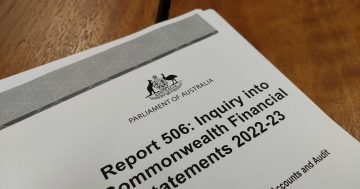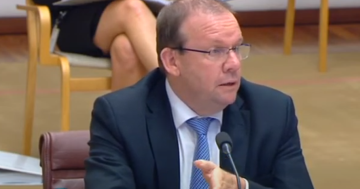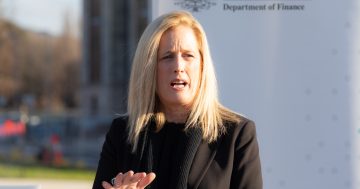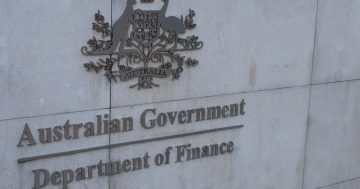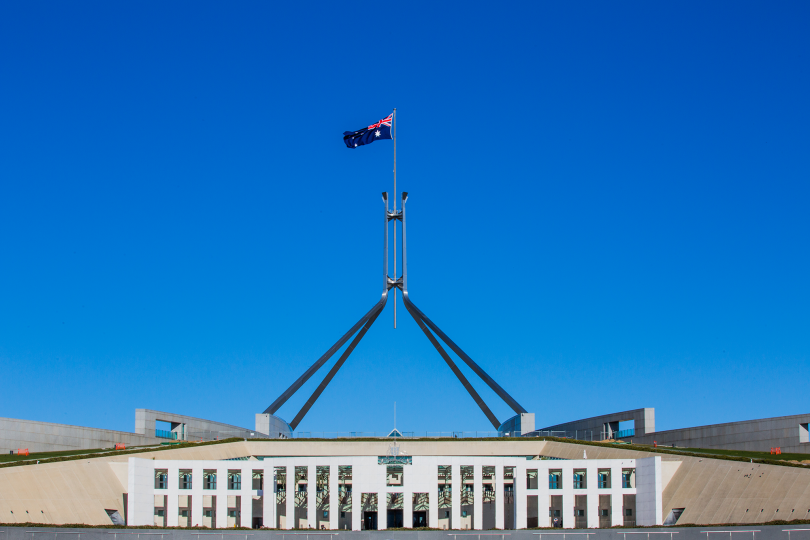
A joint committee of parliament has inquired into agency procurements. Photo: Jack Mohr.
Taxpayers are getting ripped off on a massive scale due to sloppy procurement processes across Commonwealth government departments and agencies, according to a parliamentary inquiry into Australian Public Service contracts.
The inquiry has found little commitment to ensuring value for money and even a lack of ethical compliance when it comes to procurement procedures.
The Joint Committee of Public Accounts and Audit (JCPAA) has called for significant changes to government procurement processes, which cost taxpayers tens of billions of dollars each year.
The committee says in many agencies procurement panels are “stifling competition and value for money” and that AusTender needs “fixing up”.
It also calls for “re-professionalising procurement” in a manner led by the Department of Finance.
“Put plainly, the Commonwealth has serious commitment issues with respect to procurement,” Labor MP and committee chair Julian Hill said.
“Public servants need to get far more comfortable and skilled in sharpening their pencils on suppliers, even if this leads to difficult conversations and rejection.
“Action is needed to ensure taxpayer dollars are not being wasted as a consequence of poor public sector procurement practices.”
More than $80 billion was committed in 2021-22, awarding more than 90,000 contracts to more than 12,000 businesses.
But according to the JCPAA’s report, agencies systemically fail to comply with procurement rules or demonstrate value for money.
The report claims poor recordkeeping and contract management, plus a lack of compliance with ethical requirements, is common across many agencies.
“When departments and agencies conduct procurements using taxpayer money, they should be able to demonstrate that money was spent effectively and appropriately,” Mr Hill said.
The big four accountancy firms KPMG, Deloitte, PwC and EY, along with another giant consultancy Accenture, secured nearly $2 billion in government contracts in the 2021-22 financial year, comprising more than $1.6 billion in new contracts and more than $300 million in contract variations or extensions.
The report makes 19 recommendations to the audited agencies and to the Department of Finance.
It states the recommendations are aimed at improving procurement standards in the public service and improving Finance’s ability as a regulator.
Recommendations include devising rules to make clear that sole sourcing is not good practice; multiple quotes should be obtained; and a separate value-for-money assessment must still be undertaken.
Procurement panels should also be refreshed more often.
Other recommendations include:
- It should be made clear how many quotes are sought, even when procuring from a panel, and why a contract is amended or varied;
- There should be more active management of key supply chains and markets to maximise value for money;
- Value-for-money and recordkeeping requirements must still apply even when a procurement is urgent;
- Internal audit committees should increase their scrutiny of procurement controls and provide more assurance over major, complex or risky procurements;
- All Commonwealth corporate entities should be subject to the Commonwealth Procurement Rules, reversing the current onus which sees entities such as the NDIA excluded;
- Finance must address the lack of procurement expertise and capability within the APS by prioritising the development of a procurement professional stream within the service;
- Update the procurement framework to match the development the procurement profession has undergone outside the public sector in recent years; and
- Finance needs to know what’s happening in the system.
Audit reports closely scrutinised by the committee included the management of the civil maritime surveillance services contract; Department of Defence’s procurement of six evolved cape class patrol boats; procurement of the National Capital Authority; delivery partners for the Entrepreneurs’ Program; and Digital Transformation Agency’s procurement of ICT-related services.
Original Article published by Chris Johnson on Riotact.



